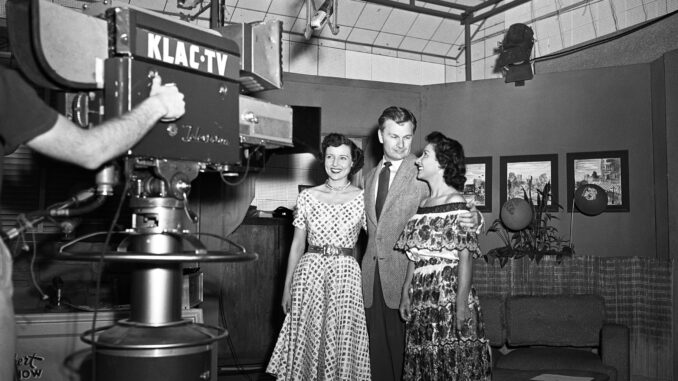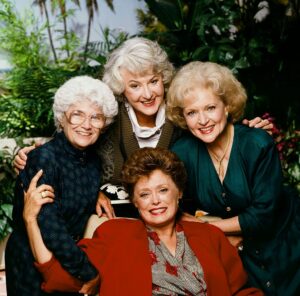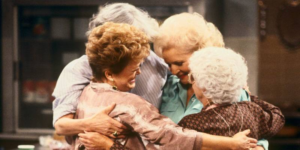
Betty White, an iconic figure in the entertainment industry, is remembered not only for her remarkable career but also for her unwavering commitment to diversity and inclusion. Over her more than seven-decade-long career, White broke barriers and used her platform to advocate for social justice, equality, and representation. This article explores her significant contributions to promoting diversity and inclusion in Hollywood and beyond, highlighting her legacy as a trailblazer for future generations.
Early Life and Career

Born on January 17, 1922, in Oak Park, Illinois, Betty White’s journey into the entertainment industry began at a young age. Her early experiences in radio and television during the 1940s and 1950s provided her with a unique perspective on the evolving landscape of media. At a time when opportunities for women, particularly women of color, were severely limited, White was determined to pave the way for greater representation.
White’s early work included appearances on various television shows, but it was her role in ‘The Golden Girls’ that catapulted her to international fame. The show, which aired from 1985 to 1992, featured a diverse cast of older women living together in Miami. It was groundbreaking in its portrayal of aging and female friendships, challenging stereotypes and addressing issues of race, sexuality, and gender.
Advocacy for Racial Equality
Throughout her career, White consistently advocated for racial equality and representation in Hollywood. One of her most notable contributions came during the filming of ‘The Golden Girls.’ In the show’s early years, White fought for the inclusion of a Black character, leading to the casting of actress Estelle Getty as Sophia Petrillo, a character who became an essential part of the ensemble. This decision was significant, as it not only brought diversity to the show but also showcased the rich experiences of women from different backgrounds.
Moreover, White’s commitment to inclusion extended beyond her roles on screen. She often spoke out against racism and discrimination, using her platform to promote the importance of diversity in all facets of life. Her willingness to challenge the status quo made her a respected voice for change in an industry that often shied away from such discussions.
LGBTQ+ Advocacy

Betty White was also a staunch ally of the LGBTQ+ community. Her support for LGBTQ+ rights was evident throughout her career, and she used her visibility to advocate for acceptance and understanding. White appeared in numerous public service announcements and campaigns promoting LGBTQ+ equality, often emphasizing the importance of love and acceptance for all individuals, regardless of their sexual orientation.
One of her most memorable contributions was her support for same-sex marriage. In 2010, she expressed her belief that everyone should have the right to love and marry whomever they choose, garnering admiration from LGBTQ+ advocates and allies alike. Her statements were not only groundbreaking but also a testament to her belief in love, acceptance, and the importance of standing up for marginalized communities.
Breaking Stereotypes in Aging and Gender
In addition to her advocacy for racial and LGBTQ+ issues, Betty White challenged societal norms surrounding aging and gender. As a woman in her 60s and 70s, she broke stereotypes about older women in Hollywood by portraying complex, dynamic characters. Her role as Rose Nylund in ‘The Golden Girls’ showcased a woman who was not defined by her age but instead celebrated for her quirks, humor, and resilience.
White’s portrayal of older women as vibrant and multifaceted helped to shift public perceptions of aging. She often emphasized that older adults are not merely passive figures in society; they are active participants with valuable experiences and insights. By challenging the traditional narratives surrounding aging, White opened doors for greater representation of older adults in media and encouraged more inclusive storytelling.
Philanthropic Efforts

Beyond her work in entertainment, Betty White was deeply committed to philanthropy, particularly in areas related to animal welfare and social justice. She founded and supported numerous organizations that promote diversity, equity, and inclusion, particularly in the animal rescue community. White believed that every creature, regardless of breed or background, deserved a chance at a loving home.
Her advocacy extended to various charities that focus on serving marginalized communities. White often participated in events and campaigns that aimed to raise awareness and funds for causes that promote inclusivity, whether it be for racial equality, LGBTQ+ rights, or support for the elderly.
A Lasting Legacy
Betty White’s legacy as a defender of diversity and inclusion is profound and far-reaching. Her commitment to breaking down barriers and advocating for marginalized communities serves as an inspiration to many. In an industry that continues to grapple with issues of representation, her voice remains a beacon of hope and encouragement for future generations of artists and activists.
As society progresses in its understanding of diversity and inclusion, Betty White’s life and work serve as a reminder of the importance of standing up for what is right. Her dedication to challenging stereotypes, promoting equality, and advocating for those who are often overlooked is a testament to her character and the impact one individual can have on the world.
Conclusion
Betty White’s journey as a champion of diversity and inclusion is woven into the fabric of her remarkable career. From her groundbreaking roles in television to her unwavering advocacy for racial and LGBTQ+ rights, she demonstrated that entertainment can be a powerful tool for social change. Her legacy will continue to inspire future generations to embrace diversity, celebrate differences, and fight for a more inclusive world. In honoring her memory, we must strive to uphold the values she championed, ensuring that everyone has a seat at the table and that their voices are heard.
